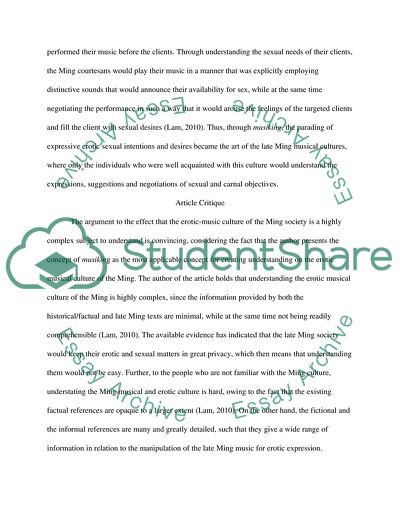Cite this document
(“Reading Music and Eroticism in Late Ming Texts Assignment - 1”, n.d.)
Retrieved from https://studentshare.org/literature/1663828-reading-music-and-eroticism-in-late-ming-texts
Retrieved from https://studentshare.org/literature/1663828-reading-music-and-eroticism-in-late-ming-texts
(Reading Music and Eroticism in Late Ming Texts Assignment - 1)
https://studentshare.org/literature/1663828-reading-music-and-eroticism-in-late-ming-texts.
https://studentshare.org/literature/1663828-reading-music-and-eroticism-in-late-ming-texts.
“Reading Music and Eroticism in Late Ming Texts Assignment - 1”, n.d. https://studentshare.org/literature/1663828-reading-music-and-eroticism-in-late-ming-texts.


